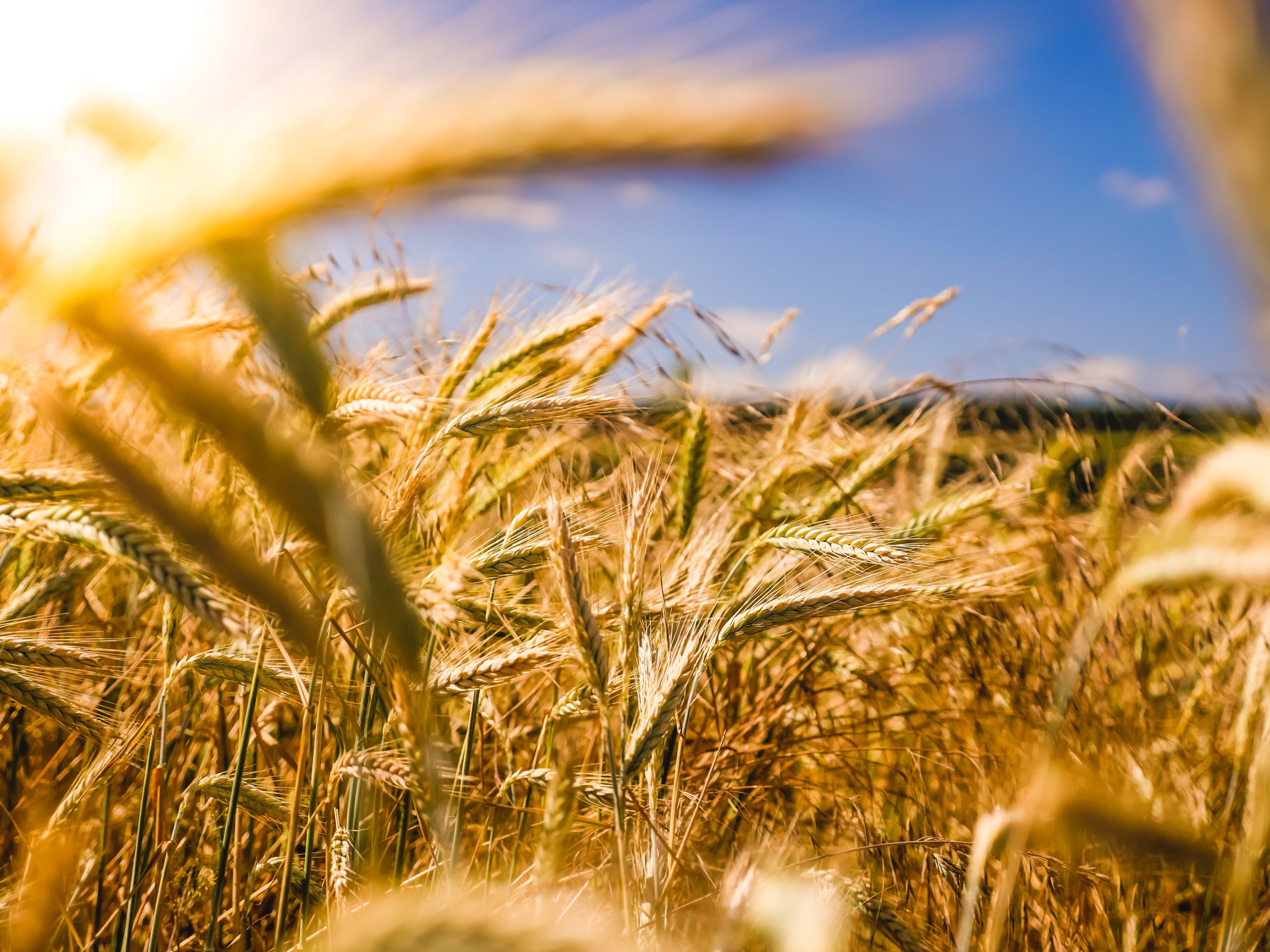Introduction: What is Sustainable Farming?
In today’s world, sustainable farming is a buzzword that has captured the attention of farmers, consumers, and policymakers alike. With an increasing demand for food production and growing environmental concerns, it is more important than ever to adopt practices that are environmentally responsible while also ensuring economic viability. Sustainable farming embodies this philosophy by promoting agricultural practices that preserve natural resources and promote long-term sustainability. In this blog post, we will explore the need for sustainable farming in the 21st century, innovations that can help us achieve a greener future, as well as challenges and benefits associated with implementing these practices. So let’s get started!
The Need for Sustainable Farming
The need for sustainable farming has become increasingly important in recent years. With a growing population and rising concerns about climate change, it is critical that we find ways to produce food that are environmentally responsible, socially just, and economically viable.
One of the main reasons why sustainable farming is needed is because traditional agricultural practices can be harmful to the environment. For example, conventional farming techniques may rely heavily on synthetic pesticides and fertilizers that can pollute soil and water sources. Additionally, industrial agriculture often involves monoculture crops which leads to soil degradation and erosion.
Moreover, unsustainable farming practices also contribute significantly to greenhouse gas emissions. According to the Food and Agriculture Organization (FAO), agriculture accounts for up to 30% of global greenhouse gas emissions.
Furthermore, there are social implications associated with traditional agricultural methods as well. Concentrated animal feeding operations (CAFOs) have been shown to cause health problems in nearby communities due to air pollution from manure lagoons. In contrast, sustainable farms prioritize humane treatment of animals while still operating profitable businesses.
There are several reasons why sustainable farming is necessary for our future including environmental protection through reduced carbon footprint; preservation of natural resources such as clean water; better public health outcomes by reducing exposure risks associated with CAFOs; economic viability through diversified income streams from value-added products like agritourism or direct-to-consumer sales channels – all while producing high-quality food without sacrificing nutrition or flavor!
Agricultural Innovations for a Sustainable Future
To ensure a sustainable future, the agricultural industry must continue to innovate and adapt. There are many exciting innovations that have already been developed or are currently in development. One such innovation is precision agriculture, which uses technology such as GPS and sensors to collect data on crops’ health and growth patterns. This can help farmers make more informed decisions about fertilization, irrigation, and pesticide use.
Another innovative approach is agroforestry, which involves integrating trees into agricultural landscapes. Trees can provide several benefits for crop systems, including windbreaks, shade for livestock or crops, improved soil quality due to root systems breaking up compacted soils and adding organic matter over time.
Vertical farming is another promising innovation that could potentially revolutionize the way we grow produce. Vertical farms utilize stacked layers of plants grown in nutrient-rich solutions instead of soil while using controlled LED lighting to simulate natural light cycles year-round irrespective of seasonal changes.
Finally “smart farming” technologies also offer great potential by incorporating artificial intelligence (AI) algorithms with machine learning techniques along with internet-of-things devices (IoT) equipped with sensors connected through wireless networks allowing real-time monitoring of weather conditions such as rainfall levels and temperature so accurate predictions regarding growing seasons can be made well in advance based on statistical analysis leading better decision making when it comes to planting choice varieties etc.
These advancements give hope that we can achieve sustainable farming practices helping us move towards a greener future while feeding global demand for food production efficiently without compromising environmental integrity nor depleting our resources unnecessarily
The Benefits of Sustainable Farming
Sustainable farming offers numerous benefits to both farmers and the environment. Firstly, it ensures a stable supply of food for future generations by preserving natural resources such as soil, water and air quality. In turn, this helps to maintain healthy ecosystems which support biodiversity.
Additionally, sustainable farming practices can reduce greenhouse gas emissions through the use of renewable energy sources like solar power or wind turbines. This not only mitigates climate change but also provides cost savings for farmers in terms of reduced energy bills.
Furthermore, sustainable farming methods prioritize animal welfare by reducing stress on livestock and providing them with access to clean water and ample space for movement. This results in healthier animals that produce higher-quality products such as milk or meat.
Moreover, sustainable agriculture often leads to increased profitability for farmers due to reduced costs associated with chemical fertilizers and pesticides. It also opens up new markets for organic crops which often fetch higher prices than conventionally grown produce.
Sustainable farming provides a holistic approach that balances economic viability with environmental protection and social responsibility.
The Challenges of Sustainable Farming
Sustainable farming is a great approach to agriculture that aims to minimize the impact of farming on the environment. However, implementing sustainable practices in modern-day agriculture comes with its own set of challenges.
One major challenge is convincing farmers and agricultural companies to adopt new sustainable methods. Many farmers are hesitant to change their traditional ways of farming, especially if it involves investing more time and money into new equipment or techniques.
Another challenge is dealing with unpredictable weather patterns caused by climate change. Farmers must adjust their planting schedules and irrigation systems accordingly while facing longer droughts or heavier rainfall than expected.
Furthermore, there are concerns about food waste during transportation and storage which can lead to significant losses for both farmers and consumers alike.
Additionally, many small-scale farms struggle financially due to competition from large corporate farms that prioritize profit over sustainability. This pressure can cause some small farms to abandon sustainable practices in favor of maximizing yields and profits.
Despite these challenges faced by those implementing sustainable farming practices, it is important not to give up these efforts towards creating a greener future for us all.
Implementing Sustainable Farming Practices
Implementing Sustainable Farming Practices
Sustainable farming practices require a significant shift in the way farmers operate. It involves moving away from traditional methods that rely heavily on synthetic inputs and towards more natural ways of growing crops and raising livestock.
One important practice is crop rotation, where different crops are planted in the same field over a period of time to enhance soil fertility. This helps reduce pests and diseases while maintaining soil health.
Another essential method is integrated pest management (IPM), which minimizes pesticide use by promoting natural predators of pests. Farmers can also use cover crops to protect against erosion, conserve moisture, suppress weeds, and improve soil quality.
Furthermore, sustainable farming emphasizes animal welfare through proper feeding schedules, vaccination programs, housing design and maintenance. Livestock should be raised as naturally as possible without using growth hormones or antibiotics.
Sustainable farming entails efficient use of resources such as energy conservation measures like reducing tillage operations or employing no-till techniques for planting.
Implementing these practices requires long-term planning with an emphasis on environmental sustainability. By doing so we can ensure that future generations will have access to healthy food sources while preserving our planet’s resources for years to come.
Conclusion
Sustainable farming practices are crucial for a greener and healthier future not just for our planet, but also for ourselves. With the increasing population and growing demand for food, we need to prioritize sustainable agriculture methods that will ensure ample production of healthy crops without harming the environment.
Innovation in agricultural technology is rapidly growing, making sustainable farming more accessible and easier to implement. Despite the challenges that come with implementing these practices, it’s essential that farmers embrace them to safeguard our planet’s natural resources.
As consumers, we can also play a role by supporting local farms that use sustainable farming practices. By doing so, we encourage farmers to continue utilizing eco-friendly techniques while promoting healthier eating habits within our communities.
Sustainable farming provides us with an opportunity to create a better world where both humans and nature can thrive harmoniously. It’s time we take responsibility and invest in this critical aspect of agriculture before it’s too late.









